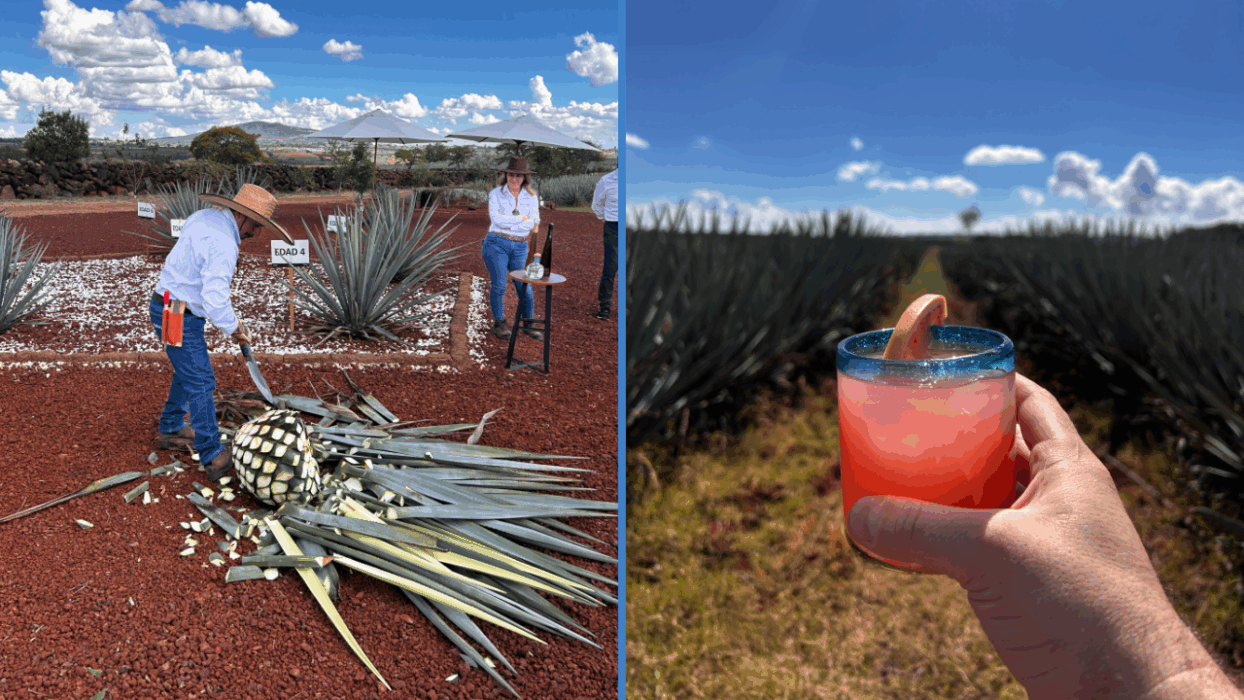
These 15 Spanish Words Mean Very Different Things Depending On Where You’re From
Latinos have tons of things in common, no matter what country we are from. Many of us drink an eggnog-style, creamy drink during the holidays that we may call coquito or rompope. For the most part, we hispanohablantes all speak the same language. That being said, certain words get extremely lost in translation.
If you’ve ever traveled to another Latin American country, you might have realized that the words you know and love mean very different things in other places. As in, sometimes, saying an innocent word like “concha” becomes something pretty embarrassing if you find yourself in Argentina (at least you’ll laugh about it later!). Ahead, find all the funniest Spanish words that mean different things depending on what country you’re from.
What does the word ‘Ahorita’ really mean?
The word “ahorita” is single-handedly the most debatable word in the Spanish language: does it mean right this second? In a bit? Or later? In some South American countries, “ahorita” emphasizes “ahora” — meaning right now. But Puerto Ricans say “ahorita” to mean way later. Meanwhile, in Mexico, it can mean now, en un rato, or possibly never.
Is it a bag or a ‘saco’?
Another word that is extremely different depending on the country you’re from, “saco” means “jacket” in several Latin American countries like Colombia and Panama. However, the same word means “sack” or “bag” almost everywhere else.
The triple meaning of ‘Torta’
This word actually has a triple meaning, and we might never fully get the hang of it. Venezuelans and Colombians say the word “torta” to mean cake, but in Mexico, the word actually means a delicious sandwich. Meanwhile, it can also mean a hit or slap in Argentina.
Batata: food and… a part of your body?
Okay, this one might be a little weird for anyone not from the Caribbean. While many countries in Latin America call sweet potatoes “batatas,” Puerto Ricans and Dominicans are a world apart. For them, “batatas” are calves — as in, the lower part of your leg.
The delicate word that is ‘Coger’
Formally, the word “coger” means “to take” and is used that way in several Hispanic countries like Ecuador, Colombia, Panama, Peru, and Cuba. In those places, it’s totally normal to say “coger algo” for “pick something up.” That being said, the word means “to have sex” in Argentina, Mexico, Guatemala, Venezuela, and other countries… so just beware of the context.
The many versions of the banana
Another word that makes us very confused is “plátano.” In países caribeños like Puerto Rico, Cuba, and Dominican Republic, “plátanos” refer to plantains. Meanwhile, they call bananas “guineos,” and that’s that. However, Mexicans call bananas “plátanos,” and a plantain is actually a “plátano macho.”
Another word that varies throughout the continent is ‘Concha’
Another one that will always make us laugh when thinking about it, the word “concha” means just about 5,000 different things depending on where you’re from. First up, we have Mexican conchas or delicious sweet pieces of bread that pair great with chocolate caliente. Other countries like Venezuela or Colombia say “concha” to mean a seashell, while places like Argentina and Uruguay say the word to refer to the female anatomy. The more you know!
Whatever it means, a ‘pastel’ is always delicious
The word “pastel” seems to have a different meaning in each country, making it pretty confusing if we say so ourselves. “Pastel” means cake in Mexico, but refers to a tamale-like holiday dish made out of plantains or yuca in Puerto Rico. Meanwhile, Cubans have “pastelitos,” or pastries.
A thousand and one ‘Vainas’
Ah, the classic word to end all words in the Spanish language: “vaina.” Like some Hispanics know, “vaina” can replace pretty much any word in our vocabulary — it can be that bowl of cereal, that houseplant, or that argument. “Vaina” means “thing” for Colombians, Dominicans, Venezuelans, and other nationalities, but in other places? It just means a seed pod or an encasing.
A cookie and a… slap?
The Spanish word “galleta” has a few different meanings — and saying it in different countries might make certain people scratch their heads. The classic definition of “galleta” is cookie, and most Latin American countries use it that way. However, Dominicans and Puerto Ricans also say “galleta” to refer to a slap in the face, while Mexicans sometimes use the idiom “echarle galleta” which means working hard at something.
‘Rato’ as a random measure of time
Ah, just like “ahorita,” the word “rato” is another tricky word that we’ll never fully know the meaning of. Officially, “rato” means “a while,” but just how long that timeframe is depends on where you’re from and the situation. In most countries, “un rato” is a long while, but in Mexico, it can mean just a few minutes, too.
Oh, and ‘coche’ also varies
Depending on the place you’re from, “coche” can mean three very different things. Some Latin American countries like Mexico and Uruguay use it to refer to a car, but Guatemalans use “coche” to refer to a pig. Meanwhile, Cubans and Puerto Ricans say “coche” to mean a baby stroller. Okay, then!
Mona, or mono, is a good thing
If anyone ever calls you “mona” or “mono,” don’t be too alarmed — they’re not necessarily calling you a monkey. People in countries like Spain and Puerto Rico use the word to describe something that’s pretty or cute, so it’s actually a (slightly strange) compliment.
A strange word to call babies
We’re still not totally over this one: depending on where you’re from, “guagua” might mean something very specific — or nothing at all. This hilarious-sounding word actually means “baby” or “child” in places like Chile but in Cuba? It actually means a bus. Meanwhile, in other countries, “guagua” might just sound made up.
And there’s ‘bollo’
Last but not least, we have the word “bollo,” which can either seem like something totally normal or make you giggle a bit — all depending on where you’re from. In Colombia, bollos are buns or rolls usually made of corn. In Mexico, they mean a kind of bread, and Panamanian bollos de maíz are similar to tamales. However, in Cuba, it actually means a woman’s nether regions — so there’s that fun fact of the day.




